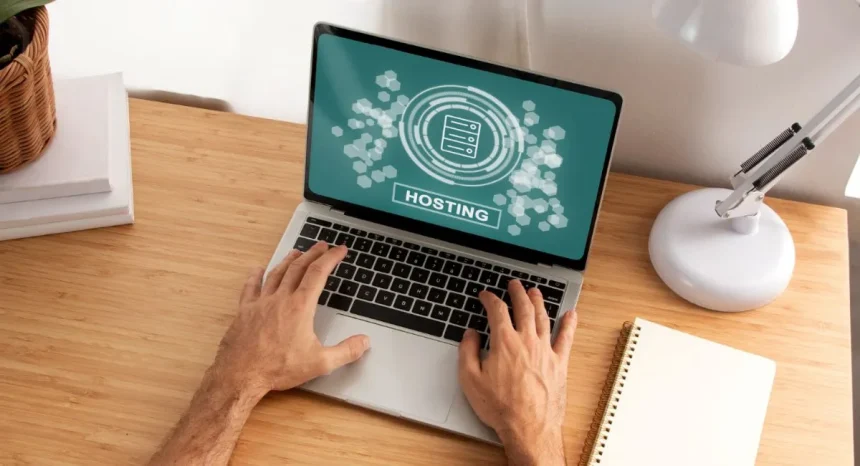Selecting the most suitable web hosting in the UAE is a key factor in establishing a good online presence. The speed, reliability, security, and credibility of your brand are influenced by the server you choose. For UAE businesses that serve both local and international audiences, the selection should be carefully made to achieve fast load times, compliance, and scalability. Your marketing and SEO also require the right hosting. This guide walks you through the key factors that matter: location, performance, scalability, support, and cost, so you can select a plan that meets your needs today and is ready to grow with you as your needs change. When developing a portfolio, an online store, or a company site, the foundation is laid in a proper hosting decision.
Testing of Server Locations and Speed
Locating servers in the UAE or other nearby areas provides a quicker response to the local consumers. Business also functions with time-zone alignment. Servers based in Europe are usually fast on an international level, but can be slow to local users. For those who use mobile devices to visit a site, site performance is even more crucial. Hosting providers that offer Mobile-friendly design support often include server-side caching or CDN services. For businesses with a local presence, choosing a provider with data centers in the UAE is one of the key decisions to be made.
Checking for Modern Technology Support
Your host should support HTML5 responsive frameworks, newer PHP versions, secure SSL, and HTTP/2. Services that run outdated software limit what your web developer can build and maintain. These features also impact compatibility with new UX/UI designs. Widget libraries, plugin compatibility, and modern code practices depend on the current environment. Reliable hosts deploy updates automatically or offer one-click upgrades. That minimizes risk from unsupported software or deprecated scripts.
Prioritizing User Experience and Uptime
Your website must be online consistently. Hosting offers a guarantee of high uptime, typically 99.9% or higher. Downtimes are irritating to the visitors, hurt the trust, and affect SEO. Providers with good infrastructure usually offer reliable backup power, network redundancy, and effective monitoring systems. Good hosts also deliver fast response times, which affects perceived quality and engagement. Ask about server load performance and how they handle traffic spikes for user-critical content.
Support and Expert Assistance
Reliable hosts provide 24/7 customer service via chat, email, and phone. When issues arise, your site needs prompt attention. Choose providers with teams of system specialists and experienced engineers. Look for support documentation and proactive alerts for maintenance or outages. Responsive support saves time, especially when you’re handling site changes or errors. You don’t want your site stuck offline or slow because of a delayed ticket.
Exploring Feature Tiers and Scalability
Your plan should support growth. Hosting plans range from shared servers to scalable cloud or virtual private servers. Consider future needs, such as email hosting, staging environments, traffic bandwidth, or multi-site management. Plans that offer automatic scaling reduce the hassle of future migrations. Shared hosts can also restrict the size of the database, RAM, or CPU access, even though they are initially cheaper. Select a provider that allows easy upgrades without downtimes.
Weighing Expense Against Value
Price matters, but value matters more. The cheapest plan may lack server resources or support. Quality hosting ensures high-performing infrastructure that yields increased conversions. Balancing price and features involve checking domain privacy, SSL, support levels, and renewal rates. Hidden fees, such as setup or overage charges, also matter. A well-priced plan with strong uptime and support often commands less in lost productivity or onsite delays.
Security Standards and Compliance
Your host must offer robust security and frequent backups. Pay attention to such features as malware scanning, firewalls, and daily snapshot systems. The businesses in the UAE are also required to adhere to data privacy regulations based on the region and sector, such as financial, medical, or government. Some hosts offer UAE-specific compliance standards or ISO certifications. Security and compliance reduce risk and build user confidence.
Custom Tools and Control Panels
Hosting often includes management tools such as panel or custom dashboards. These help you manage databases, backups, and SSL installation with ease. Seamless entry points support your internal workflows. Choose a provider whose control panels reduce technical burden and align with your internal team’s skills.
Identifying Specialist Hosting Needs
Certain websites require niche hosting, such as e-commerce platforms, WordPress-optimized solutions, or developer-friendly frameworks like Node.js. These are tailored for specific applications. If you run an online store or rely on custom code, seek a host with qualified expertise in those environments. That ensures compatibility, performance tuning, and less friction during setup.
Assessing Host Credentials
Verify that hosting vendors are licensed, registered, or certified, and have credible business registrations. The UAE’s local activities may provide superior legal redress and billing clarity compared to foreign hosts. Seek certifications such as ISO or PCI DSS for payments that are industry-standard. Such credentials can be used to show professionalism and reliability by the providers.
Ongoing Maintenance Planning
Quality hosting encompasses routine supervision activities, including backup by default, patching, and hardware checks. Determine the frequency of backups, retention time, and the possibility of restoration. Hosts with proactive care detect hardware failures and replace failing drives before downtime. These become essential when you’re scaling or handling production use cases. A Website design project requires peak uptime and optimized infrastructure.
Choosing the Right Deployment Method
Decide between shared, VPS, and dedicated or cloud plans depending on your resource needs. Shared hosting is affordable but limited. VPS offers a balance of power and price. Dedicated servers or cloud infrastructure support enterprise-level scale. Providers may include Docker support and advanced deployment tools. Each option fits different budgets and development styles, so assess expected growth when making a choice.
Supporting Developer Tools and Access
If your website developer requires SSH, Git integration, or staging environments, ensure the host supports these tools. Some plans restrict access to specific backend options. Developer-friendly features reduce deployment friction and speed up updates. SSH access allows remote supervision and secure file transfers.
Specialized Hosting for Complex Solutions
Your hosting needs differ depending on the Types of websites you build. Simple informational sites require fewer server resources, while ecommerce or booking platforms demand high bandwidth and redundancy. Specialized hosting packages offer tailored performance tiers, including managed WordPress, database-backed apps, and headless frameworks.
Tailored Hosting for Unique Businesses
Every business has unique branding and functionality needs. The ability to have hosting that allows customized server configurations is essential. Imagine a site requiring non-standard PHP modules, specific cache versions, or custom database engines. Customizable environment options enable your development team to tailor the stack to meet your particular needs.
Continuous Improvement Through Support
Hosting is not “set and leave”; it requires redevelopment considerations over time. As your site evolves, your hosting needs may change—from plugin support to dev environments, staging, or multi-site management. A quality provider enables growth by offering seamless scalability and upgrade paths without disruption.
Market Reputation and Reviews
Research host reputation through user reviews, uptime reports, and performance benchmarks. Forums and industry groups provide insight into support reliability and feature delivery. A host may sell promises but fail to deliver on them. Look for consistent uptime claims and verified test results. Host reliability should reflect quality service rather than marketing copy.
Conclusion
Selecting the best web hosting in uae combines speed, support, scalability, and price alignment. Prioritizing mobile speed, developer tools, compliance, and local presence helps build a productive and creative online platform. For UAE brands, selecting wisely establishes a solid digital foundation for growth. At AdWeb Studio, we guide clients through this process to ensure hosting choices support both current needs and future ambitions, so your website can truly stand out.
FAQs
1. Should I choose local or international hosting?
Local hosting is more responsive and adheres to the country’s laws; foreign hosts may be cheaper but slower for audiences in the UAE.
2. What amount of disk space and bandwidth is required?
Calculate according to what you plan to have in place, including blogs, images, videos, and add 20 percent as a contingency for expansion.
3. Can I switch hosting providers later?
Yes. You can migrate data, DNS, and email. But downtime depends on your setup and planning.
4. Do I need daily backups?
Yes. Daily backups with a retention window of at least 7–30 days provide quick recovery from issues.
5. Is managed hosting worth it?
Managed plans command a higher price but include security, performance tuning, and updates, saving time and effort.







